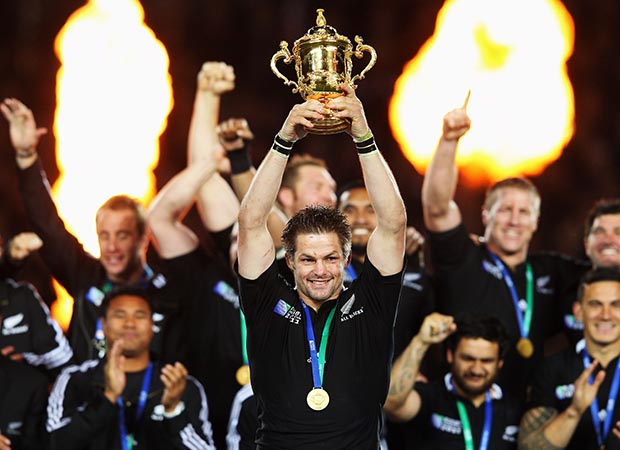 It was a dirty Dublin night in November 2001 when our shambles of a taxi driver eventually located the Killiney Castle Hotel in the wastelands south of Dalkey and the British press corps – myself and Mark Souster of the Times – made a belated appearance at the New Zealand media event to announce their team to play Ireland later that week.
It was a dirty Dublin night in November 2001 when our shambles of a taxi driver eventually located the Killiney Castle Hotel in the wastelands south of Dalkey and the British press corps – myself and Mark Souster of the Times – made a belated appearance at the New Zealand media event to announce their team to play Ireland later that week.
Things were clearly drawing rapidly to a close. In one corner Jonah Lomu was trying to escape the inevitable media scrum that surrounded his every move in those days while Andrew Mehrtens was looking at his watch rather pointedly as he tried to wind up his series of interviews. Doug Howlett and Tana Umaga had already made their excuses and left and it was in some panic that we looked around an emptying room for a “name” to interview.
New Zealand coach John Mitchell – well known to us after his spells with Sale and England – had spotted our late arrival and immediately realised our urgent need for an interview of some description.
He called us over – “Nice of you to drop in gentlemen” – and then pointed to a distant corner of the room that boasted a coal fire. Sat close by on a leather settee was a fresh-faced but tough-looking youngster apparently immersed in the sports pages of the Irish Times, possibly trying to hide his embarrassment at not being required for any interviews. The last time that ever happened in his illustrious career.
“You should get over there quickly and talk to Richie McCaw, he will be making his debut on Saturday. He might just turn into the best flanker we have ever produced.” God bless you, Mitch, for saving our professional bacon and I wonder if New Zealand have ever quite thanked you enough, either, for introducing McCaw to the fray so early in his career.
Nothing remarkable ensued from that first interview. McCaw was polite, helpful and even then entirely devoid of stress with that almost surfers’ cool that has served him so well for so long. He was clearly rather pleased with the late and unexpected burst of media attention but there were no profound observations, revelations or startling factoids. A third-year student in Agricultural Science at Lincoln University, McCaw had represented New Zealand U19 and made an immediate impact in senior rugby with a hat-trick of tries for Canterbury in an NPC match against Otago.
More recently he had captained New Zealand U21 to victory over their Australian counterparts but he had still yet to make his Super Rugby debut for the Crusaders. Then, as now, he was a much smaller and leaner figure in person than he appears on the field when he fills the All Blacks jersey and visibly grows in stature.
It was three days later that McCaw did his most eloquent talking with a quite brilliant and timely MoM performance on debut as New Zealand dug themselves out of a hole at 21-7 down to win a cracking match 40-29. Rangy – definitely a 400m man more than a sprinter – stroppy but contained, clever, canny, good hands, big heart, indomitable, tireless, hard-tackling, permanently offside but clever with it. We saw it all that day and despite a record breaking 15-year shift at the coal face nothing has ever changed.
I have my match report from that day in front of me: “Openside flanker Richard McCaw – yet to start a Super 12 game but rangy, strong, fiery and controlled – gave an extraordinary man-of-the-match display that may have made Josh Kronfeld squirm back in Leicester. After the All Blacks tour party was announced, Kronfeld said he thought the New Zealand No.7 jersey was being given away just a little too easily. Perhaps it was just a friendly reminder of the responsibility and historical baggage a New Zealand openside flanker must always live with. On the evidence of this seriously impressive performance, McCaw is well capable of adding substantially to that legend.”
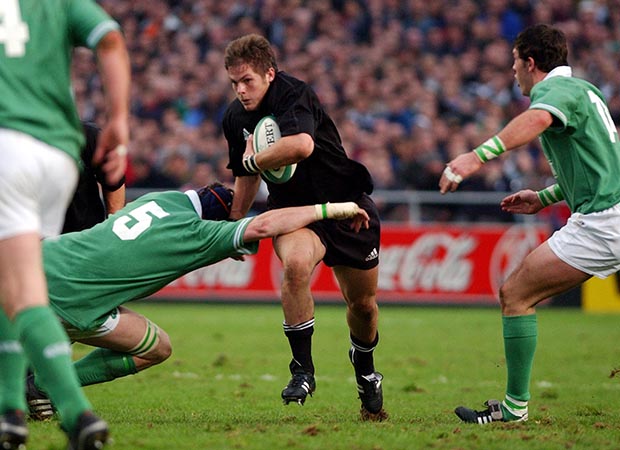 Well, in fairness it wasn’t exactly the most difficult prediction. A star was clearly born that day at Lansdowne Road.
Well, in fairness it wasn’t exactly the most difficult prediction. A star was clearly born that day at Lansdowne Road.
The most remarkable thing about McCaw still remains his longevity. Kronfeld seems quite a distant historical figure from the 1995 and 1999 World Cup yet he is effectively the man McCaw succeeded. New Zealand is the home of the natural scavenging openside flanker – there are more world-class loosies per square mile down there than anywhere on the planet – yet for 15 years nobody else down there has had a look in.
And not only is McCaw an all-time great but he has also seemed largely impervious to injury and loss of form. Even when he did get badly injured during the 2011 World Cup he played on with a broken foot for the final three games, declining to go for an X-ray which if it had shown the fracture, the New Zealand medics would have felt obliged to act on such information.
Yesterday was his 136th start in 142 Tests, 104 of them as captain. As skipper he very rarely comes off towards the end of a game and there are few ‘soft’ caps in the final few minutes for young tyro New Zealand openside flankers hoping to make a name for themselves.
Some very considerable international careers have been strangled at birth by his presence. In another era Marty Holah for example might have had 60-70 caps to his name, the excellent Dan Braid also, while Adam Thomson and Chris Masoe are other flankers most other nations would have killed for whose Test careers were stalled by his presence.
Actually it creates a bit of a problem post 2015 because there is no obvious successor. His longevity has almost frightened off contenders – many of the best back-rowers have switched to blindside and No.8, and, of course, whoever does step into his shoes will immediately suffer from the task of trying to replace the irreplaceable.
During that time McCaw has been an integral part of two of the great backrow combinations in the history. There was his partnership of Jerry Collins, Rodney So’oialo in 2005 which helped rout the Lions and then six years later he was again the common factor at the 2011 World Cup where his excellence along with Kieran Read and Jerome Kaino just about got the spluttering All Blacks over the line against France in the final. If push came to shove I would opt for the more explosive 2005 combo but there’s barely a fag paper in it.
Amongst all the success – in those 142 Test matches McCaw can reflect on a win rate of 89 per cent – there have been a couple of failures. The disappointment of a World Cup semi-final defeat against Australia in Sydney in 2003 was a major wake-up call but the biggest setback came four years later when he was in charge of a seemingly dominant New Zealand team that completely blew it against France in the quarter-final at the Millennium Stadium.
That, as much as anything, was a failure of captaincy and leadership as the All Blacks pounded away mindlessly in the final minutes looking a try when “all” they needed to reach the semi-finals was a dropped goal.
In his autobiography The Openside, McCaw admitted to his failure on that front and that New Zealand did not even have a set dropped goal move to call because they hadn’t thought any of the matches would be that close.
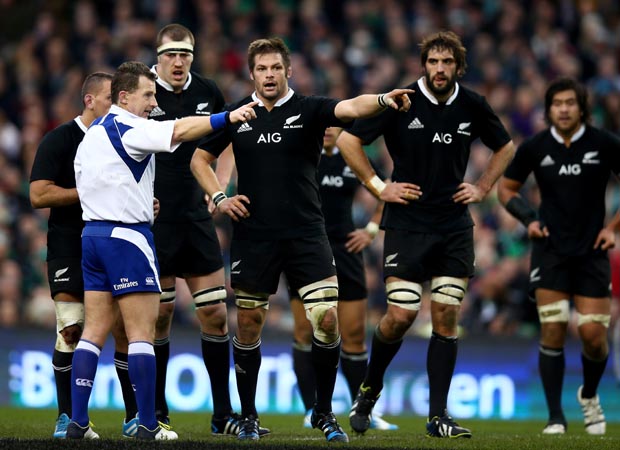 “The guts of it is that in that moment, our leadership group failed under pressure. That includes me. Rather than saying, ‘have a pot if it’s on’, I should have been more directive. We didn’t have a dropped goal move, we believed that we were good enough to go out and play well . . . it was a failure of imagination as much as anything.”
“The guts of it is that in that moment, our leadership group failed under pressure. That includes me. Rather than saying, ‘have a pot if it’s on’, I should have been more directive. We didn’t have a dropped goal move, we believed that we were good enough to go out and play well . . . it was a failure of imagination as much as anything.”
That defeat in 2007 cut deep, I have rarely seen such dejection on the face of a sportsman as he faced the Press that night, that’s when his face wasn’t buried deep in his hands. He knew the criticism that awaited him and coach Graham Henry when they got back home. For once, however, there was no knee-jerk reaction and both lived to fight another day.
Winning RWC2011 in New Zealand became a life’s mission and if the All Blacks were hanging on a little at the end few begrudged McCaw or New Zealand their moment in the sun.
Luck has played a part in his longevity but not overly so. McCaw is model pro in terms of body maintenance, taking the same care of his body as he would in a pre-flight check when taking one of his gliders up for a flight. Nothing is left to chance.
I remember on one November day here he mentioned he had been doing a 20-minute strengthening routine on a shoulder niggle every morning for the previous two months just to keep it under control.
“It’s really boring and repetitive and sometimes you think there must be a better, easier way,” said McCaw. “But there isn’t and the truth is continual rehab like that, the attention to detail and just getting on with it, is what keeps you on the road. It takes a particular mind-set but once you achieve that it’s not so bad.”
McCaw likes to keep thing simple and uncomplicated but don’t mistake that for a lack of intellect and a genuine understanding of the nuances of sport and life. He has got that okay. Getting him talking about gliding and his love affair with flying light aircraft generally and you hear a man who enjoys technical details and data. He understands all the complexities, he gets them totally, but refuses to be an obsessive. And for McCaw action is always preferable to theory.
That last trait might be in the blood. His grandfather JH Jim McCaw DFC – the grandson of a Scottish immigrant from the Borders – served with the 486 ‘New Zealand’ squadron based at RAF Tangmere and Marston during World War II. His flying duties were many and taxing – he flew over 300 operational sorties, mainly in Tempests – but in the summer of 1944 he was exclusively employed taking out the murderous V1 and V2 missiles that were randomly launched at London, looking to kill and maim as many citizens as possible as the Nazis played their final card. Hiwa hau Maka – beware the wild winds – as the squadron motto so aptly proclaimed in Maori.
 Dangerous times.
Dangerous times.
Officially, he was credited with 19½ kills but he also managed to shepherd – wingtip – a number out to sea when he had run out of ammunition. Thousands, probably tens of thousands, of Londoners owe their lives to McCaw’s grandfather and his colleagues. On one evening alone in July 1944 he destroyed four V2s heading towards the suburbs, finishing his patrol by scraping into Biggin Hill well past midnight with his fuel tanks showing empty. Coolness under pressure.
McCaw spent a lot of quality time as a schoolboy and young teenager staying with his grandfather at his gliding school in Kurow and fishing the local rivers and it always strikes me that the heart and soul of Richie McCaw the rugby player lies in that direct genetic link with JH McCaw.
It adds real texture and depth to a man who doesn’t reveal too much of himself to the world at large.
As for is reputation for living offside, yes, it’s well-deserved but like all opensides he wears such a reputation like a badge of honour. He pushes the limits, as all great sevens do, and it is up to officialdom to penalise him or not. It’s a jungle out there and you do what is necessary.
He is very clever, though. McCaw instinctively understands angles and velocities and makes that work to his advantage. He has been pulling off one little manoeuvre – conjuring trick might be a better description for a decade or more – dig out the tapes sometimes – and has been getting away with it just about every time.
To get to a ruck or maul first sometimes he will come from a clearly offside position but as he makes contact he simultaneously swings through 180 degrees so that it then appears he has arrived from the New Zealand side, ie has arrived ‘through the gate’. He is so agile and quick it happens in an instant and is almost never picked up. And it’s a win-win – not only has he got contact situation first but the very fact that he has arrived from the opposition’s side had denied an opposition player the space to do likewise.
McCaw has also got that lightning quick rugby brain that can calculate exactly where and when its okay to concede a penalty – when a ‘professionally’ conceded penalty is the percentage play – or how many he can concede in quick succession before he has to back off. Good luck to him, I say.
The truth is McCaw understands the laws as well as anybody and when you combine that with a peerless talent and dedication you get rugby union’s most-capped player. He reportedly declined a Knighthood in 2011 thinking it inappropriate for an active player to be so honoured – good on him for that – but there will be no avoiding the K if New Zealand can become the first team to retain the World Cup this autumn.


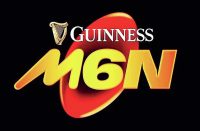
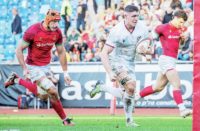




















Pingback: buy disposable vape cartridges in Europe
Pingback: Webb Schools Palestinian Resistance